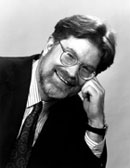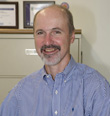|
Wed., May 30
THERE WILL BE NO FERMILAB ILC R&D MEETING THIS WEEK
2:30 p.m.
Special Particle Astrophysics Seminar - Comitium (NOTE DATE & LOCATION)
Speaker: C. Lunardini, University of Washington
Title: The Diffuse Supernova Neutrino Background
3:30 p.m.
DIRECTOR'S COFFEE BREAK - 2nd Flr X-Over
4:00 p.m.
Fermilab Colloquium - Curia II (NOTE LOCATION)
Speaker: S. Mele, CERN
Title: Demystifying Open Access
Thurs., May 31
THERE WILL BE NO ALCPG ILC PHYSICS AND DETECTOR SEMINAR THIS WEEK
3:00 p.m.
Joint Theory-CMS Seminar - Curia II (NOTE TIME)
Speakers: K. Burkett and P. Skands, Fermilab
Titles: Preparations for Early LHC Physics: CMS
Preparations for Early LHC Physics: Theory
3:30 p.m.
DIRECTOR'S COFFEE BREAK - 2nd Flr X-Over
THERE WILL BE NO ACCELERATOR PHYSICS AND TECHNOLOGY SEMINAR TODAY
May 30 - June 3
NuInt07
Fifth International Workshop on Neutrino-Nucleus Interactions in the Few-GeV Region
Click here for more information.
Click here for NALCAL,
a weekly calendar with links to additional information.
|
Wednesday, May 30
-Creamy mushroom chicken soup
-Cajun chicken ranch
-Chicken wellington
-Italian sausage w/peppers
-Smoked turkey panini pesto mayo
-Assorted sliced pizza
-Chicken alfredo fettucine
Wilson Hall Cafe Menu |
|
Wednesday, May 30
Lunch
- Pad thai salad w/shrimp & green onions
- Cabbage, red pepper & carrots
- Coconut flan
Thursday, May 31
Dinner
- Smoked salmon napoleon
- Veal saltimbocca
- Orzo w/pine nuts, arugula & parmesan
- Steamed asparagus
- Olive oil, orange & almond cake
Chez Leon Menu
Call x4598 to make your reservation. |
|
|
UChicago introduces
Collaborative Initiative


The University of Chicago announced today a new program to initiate new projects that provide the basis for future collaborative research with Fermilab.
"I am pleased to announce a new program of Strategic Collaborative Initiatives designed to provide support for collaborative research projects between University of Chicago faculty and Fermilab scientists/engineers," wrote Donald Levy, Vice President for Research and National Laboratories at the University of Chicago, in an email to scientists.
Proposals must include at least one applicant from each institution. Proposal budgets should be in the range of $50k-$100k for one year. The deadline for the first round of proposals is June 30, 2007. Support for ongoing work, or work being performed mainly by one of the principal investigators, will not be considered.
For more information on the program and how to apply, please read the announcement (pdf file).
|
Nobel winner George Smoot
to speak at Users meeting
 |
| George Smoot |
On Wednesday, June 6, a much admired man will talk among us. Nobel Prize winning astrophysicist and cosmologist George Smoot will speak as part of Fermilab's annual Users' meeting.
Titled "Relics of Creation: The Big Bang, the COBE Satellite and the Cosmic Microwave Background" Smoot said his talk will detail "the events leading to the study of CMB and the discovery and utilization of CMB anisotropies to understand the structure of space time and the contents of the universe."
"I hope people will see that we have made very substantial progress toward making a model of the universe's beginning and evolution and have it checked substantially with observations that give us details and demonstrate our understanding of the universe," said Smoot.
Smoot said he was last at Fermilab five years ago for an education meeting and a discussion of a PBS show. This year's visit may not involve any television opportunities, but Smoot said he is looking forward to returning to the lab to connect with his Fermilab colleagues and glean an understanding of Fermilab's efforts in the increasingly unified fields of cosmology and particle physics.
Smoot, who has been affiliated with Lawrence Berkeley National Laboratory since 1970, is famous for his research on cosmic background radiation, which is thought to be the relic of the Big Bang's intense heat. He and John C. Mather were awarded the Nobel Prize in Physics in 2006 for measuring spectrum and anisotropy of the cosmic microwave background radiation. He is a professor of physics at the University of California, Berkeley and was awarded the Einstein Medal in 2003.
Other speakers at the Users' meeting include Norman Ramsey, professor of physics at Harvard University and former president of Universities Research Association, Inc. Fermilab pioneers Ned Goldwasser, Fermilab's founding deputy director, and James Sanford, first chair of the NAL Users Organization in 1967 and Fermilab's former associate director for program planning, will speak Wednesday afternoon. Smoot will speak at 8:00 p.m. on June 6. Tickets for his talk and more information on the Users' meeting can be located on the Users' meeting web site.
--Rhianna Wisniewski
|
From The Hindu
May 28, 2007
Searching for the God particle
Line and engineered to one-billionth of a metre accuracy, the $6bn, 27km circular proton accelerator deep beneath the Swiss-French border is the world's largest machine. And it's been built to uncover the smallest fragments of the cosmos. Robin McKie travels to Geneva to meet the scientists determined to prove the existence of the God particle.
Physicist David Evans has an unusual take on the $6bn underground particle accelerator he is helping to complete on the Swiss-French border outside Geneva. 'If it works, we will have built the most complex machine in history,' says the Birmingham University researcher. 'If it doesn't, we will have assembled the world's most expensive piece of modern art.' These sentiments suggest a certain nervousness among Europe's scientific elite as their great project reaches fruition - though most researchers say they are confident of success. They insist that when Europe's Large Hadron Collider (LHC) is switched on in November, it will hum into life as expected. Beams of protons, one of the key constituents of an atom's nucleus, will be hurtled at colossal velocities around the machine's 27km circular tunnel and made to smash into each other.
Read more
|
|
|
A safety problem right under our noses
Today's column is written by Environment, Safety and Health Section head Bill Griffing.
 |
| Bill Griffing |
We have a safety problem at Fermilab that we need to solve before someone gets seriously hurt or killed. It has nothing to do with accelerator operations or experiment procedures. It's about how we drive.
If I asked you to guess the number of speeding citations issued each year on the Fermilab site, what would you say? 50? 100? Would you believe more than 200 tickets per year? And this reflects only our employee population. Visiting scientists receive an even greater number of citations. More than 40 additional tickets are issued each year for driving at speeds more than 20 mph over the posted limits. Way too many people are driving way too fast. We have to do better.
Now--would you believe that we average 55 on-site vehicle accidents per year? At least once a week, on average, someone reports a vehicle accident to Security. Fortunately, most of the time there is no personal injury. But given the speeds that motorists are driving and the number of other traffic citations, it is a wonder to me that we haven't had more injuries - even fatalities. We have to do better.
Looking at the data, we see that motorists backing their vehicles cause over 40 percent of the on-site accidents. Occasionally, obstructed views are the problem, but most backing accidents result from inattention, hurrying, distraction (such as talking on a cell phone) or even eating. We can consider ourselves lucky when the motorist only backs into a light pole, a parked car or a guard rail--not a pedestrian or cyclist. We have to do better.
It's not hard to understand how to do better--or the inevitable consequences if we don't. Doing better will take an honest commitment to safe driving from every Fermilab employee and user, so that we do not continue to endanger ourselves, our coworkers, the cyclists and pedestrians who use our site for recreation, and the visiting public.
|
NuInt07 starts today
The Fifth International Workshop on Neutrino-Nucleus Interactions (NuInt 07) starts today in One West with summary sessions on searches for new physics, reviews of new neutrino results and updates on current and future neutrino experiments. About 125 scientists have registered for the 5-day workshop, which runs until Sunday evening. Fermilab scientists are invited to attend the various sessions. The full program is available here.
|
|
Pine Street closures Monday and Tuesday
On Monday and Tuesday, June 4 and 5, utility trenching and pavement marker installation activities will require partial closures of Pine St. Inbound Pine St. will be closed Monday from 8:00 a.m. until 6:00 p.m. On Tuesday, outbound Pine St. will be closed from 7:30 a.m. until 5:00 p.m. Weather conditions could alter this schedule. Check Fermilab Today for weather-related schedule changes. Please use the Wilson St. gate as the detour route. Notice and detour signs will be posted.
Java Intro: July 16-20
This course covers the foundation of the Java language, those aspects of the language that will be used in every Java program. The course is intensive, with an even mix of lecture and hand-on labs. The programs developed in the course are applicable to real-world problems and lay a solid foundation of skills for more advanced Java enterprise development. Learn more and enroll.
Accelerated C++ Short Course
On June 7, Fermilab will offer the first session of Accelerated C++: A Short Course in Practical Programming by Example.
The Short Course is an extended professional development experience emphasizing computer programming in modern standard C++. No tuition is charged; the only cost is for the required textbooks. A subsidy is available for most students. All course participants receive TRAIN credit upon successful completion.
Walter Brown, who participates on Fermilab's behalf in the international C++ standardization effort, is the course instructor. He is a member of the Computing Division's LSC department.
Course registration is now open. Course Announcement and Syllabus.
Additional Activities |
|